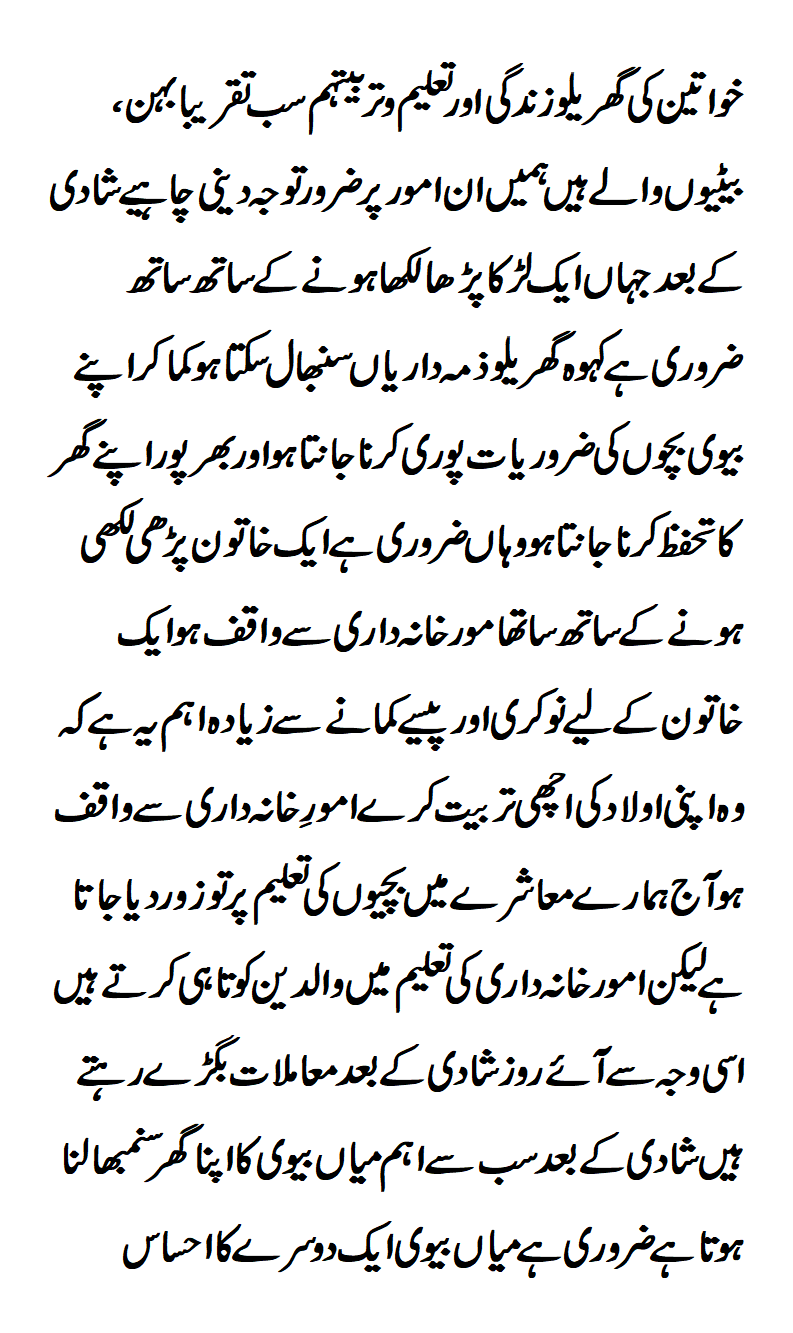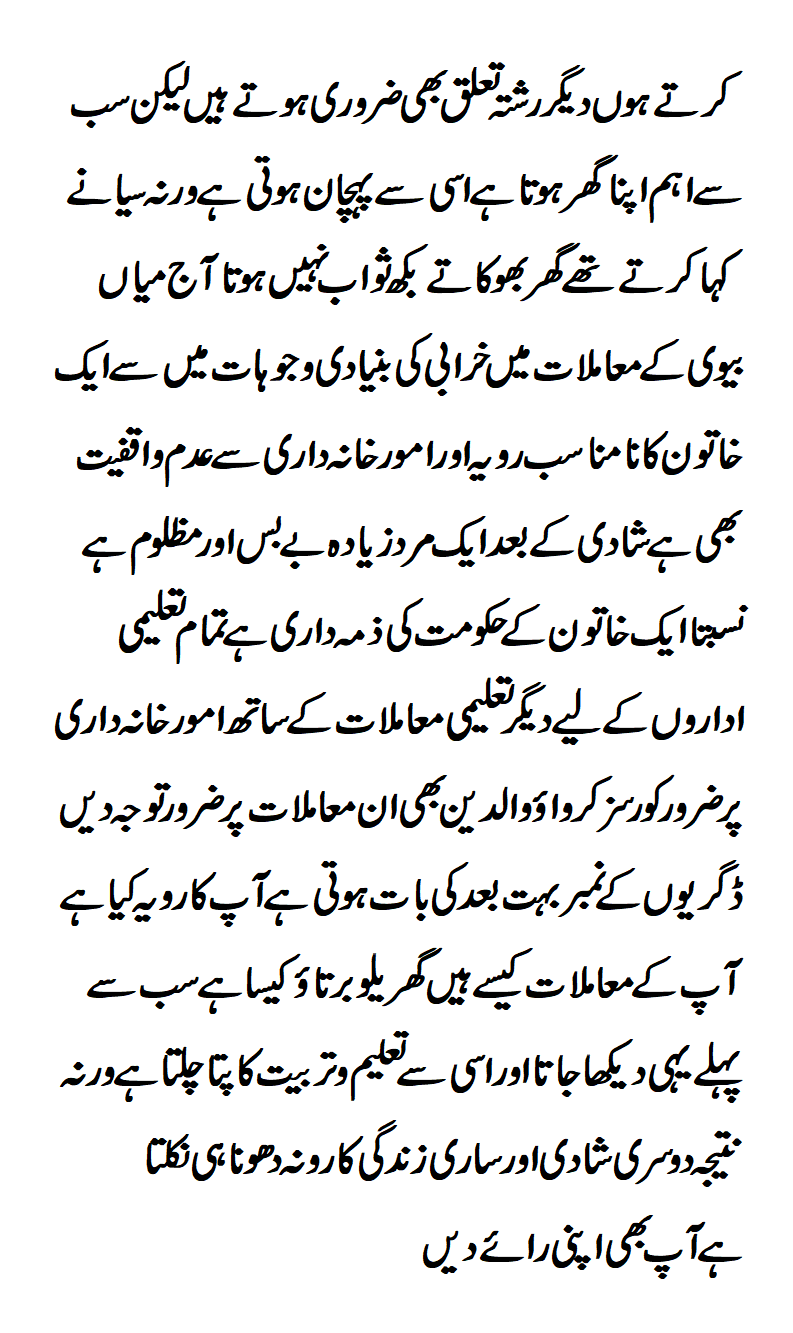“No nation can ever be worthy of its existence that cannot take its women along with the men. No struggle can ever succeed without women participating side by side with men”- Quaid-e-Azam Muhammad Ali Jinnah
Even though Pakistan was established as a nation adamant to champion the rights of every citizen, especially its women, it has, unfortunately, often remained divorced from the ideals set by Quaid and the Islamic principles on which the nation was conceived that clearly mention in Surah 9, verse 71 of the Holy Quran:
“The believers, men, and women are allies to one another: They enjoin what is right and forbid what is detestably wrong…”
Despite making 48.5% of the total population of Pakistan, from low literacy rates to low employment, from forced marriages to forced conversions, from domestic violence to abuse at the workplace, females in Pakistan face discrimination in almost every field one can think of. However, the most dismal picture is that of the underlying roots of any success-education for girls in Pakistan.
As per figures, nearly 12 million girls are not in school, and as per a report, “Shall I Feed My Daughter or Educate Her?” against a number of 49% boys dropping out of school by sixth grade, 59% girls drop out and only around 13% of them make it successfully to grade 9- a ridiculously low figure! A further probe into the matter presented yet another worrisome picture of even the largest provinces by population i.e. Punjab and Sindh being adversely affected by gender disparities of about 14-21%.
But what really is it that impedes education for females? Especially when the constitution of Pakistan, the guiding principles of the Quaid, and the Islamic religion all root for and encourage education? And particularly when international institutions, NGOs, activists, and media are with each passing day showing their undying support for the cause?
What is it that holds the ruling governments from getting females enrolled and ensuring they further their education especially when the country is ranked as the second-worst in the world in terms of gender equality and the lowest-performing nation in South Asia with regard to educational standards?
Few of the many reasons suggesting plausible answers to why girls in Pakistan are being robbed of their right to education are the social gendered norms, female health and nutrition, high cost of education, insecurity, poor infrastructure, long distances to school, incompetent teachers, lack of facilities for the teachers, decentralized government structure leading to inconsistencies,
the astonishingly inadequate public expenditure of only 1.5% of the total GDP (outgoing fiscal year i.e. 2020-2021) on education and unquestionably above all, the domestic affairs of females. The domestic affairs (family’s education level, family’s attitude towards female education, family’s income levels, family’s religious beliefs, and the family’s social and cultural beliefs) of females is a multifaceted domain in regard to female education that affects them in several ways.
Firstly, the families’ aptitude for female education especially in the rural areas is highly negative. The parents who are unlettered themselves consider female education worthless and meaningless and therefore, do not find it necessary for them to obtain any formal education. Instead, the domestic environment expects women to assume the roles of wives and mothers as their full-time job and to take care of the household chores instead of “wasting” hours at school.
This is why starting from a very young age girls are taught to be well versed in cooking, cleaning, hauling waters, taking care of the siblings or grandparents, etc. This not only divides the women’s attention from their basic right to education but also makes them subject to increased responsibilities.


Moreover, the same disheartening approach of families towards female education is a result of parents’ believing that the female education would be of no direct benefit to them after the girls get married sooner or later. The domestic setting believes that the women would only provide for the families they have been wedded into and their husbands,
so expenditure on their education would be a wastage of money. Conversely, the husbands are expected to provide for the girls, so the families believe that there is little or no need for any formal education for females. This is exactly one reason why male education is preferred over females who would directly provide for the family and why girls are married off at a very tender age.